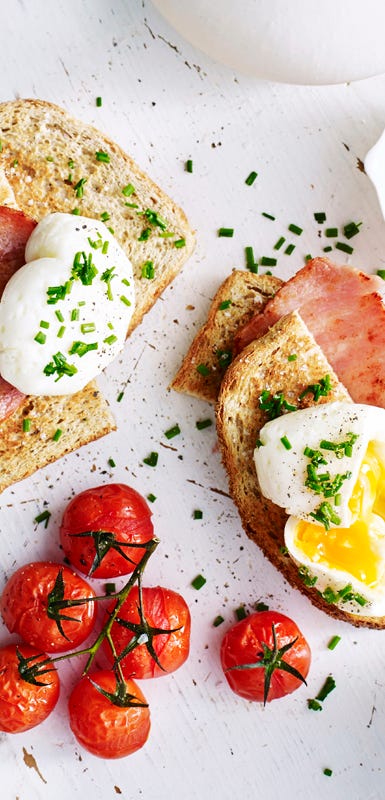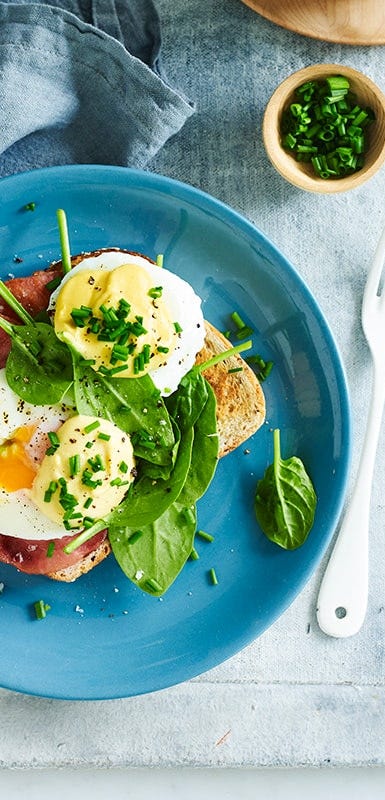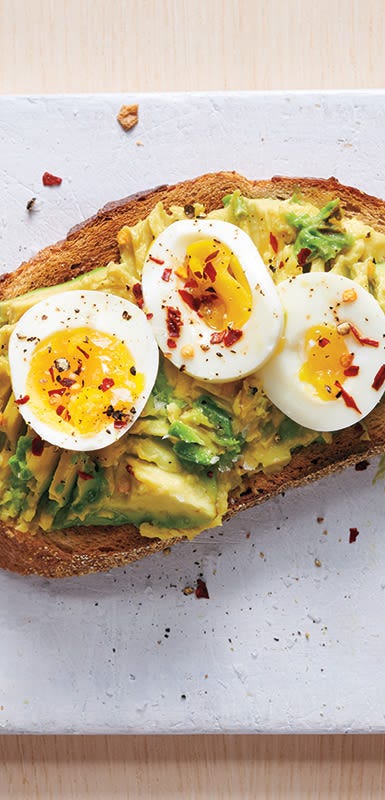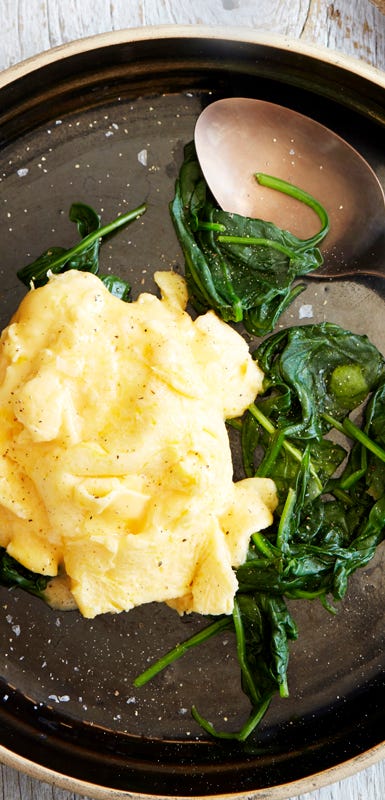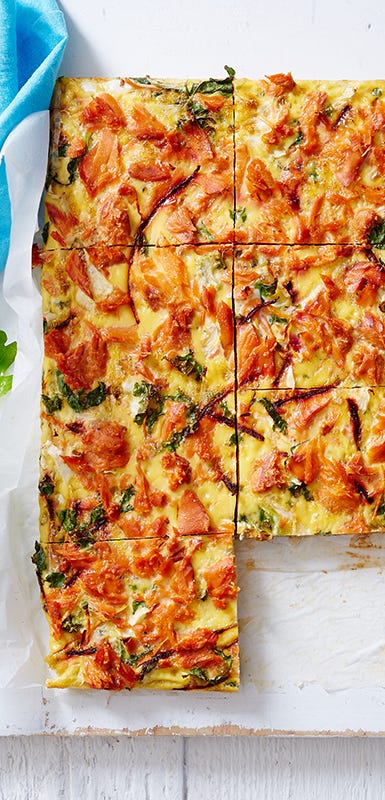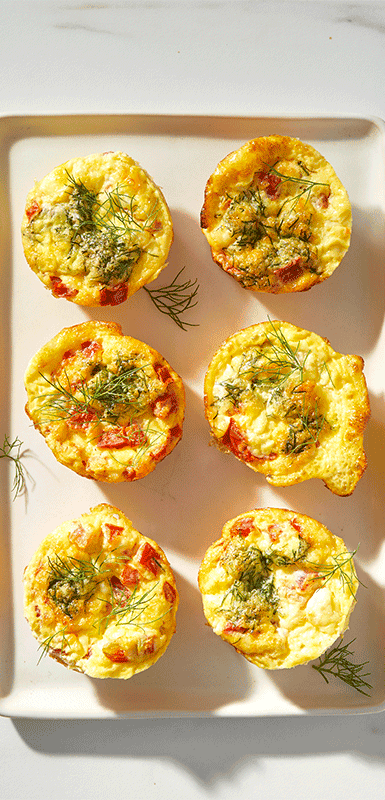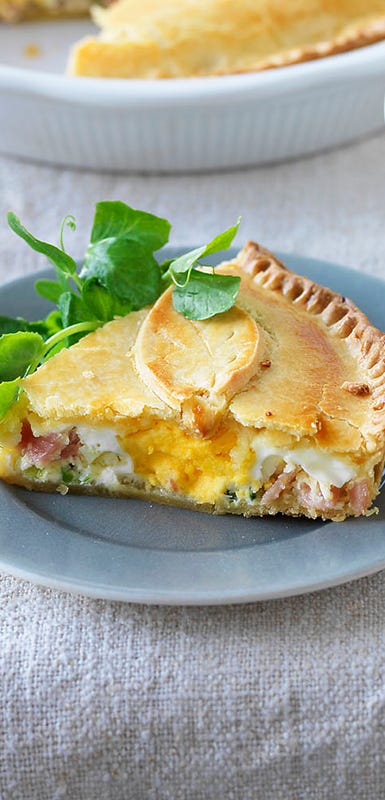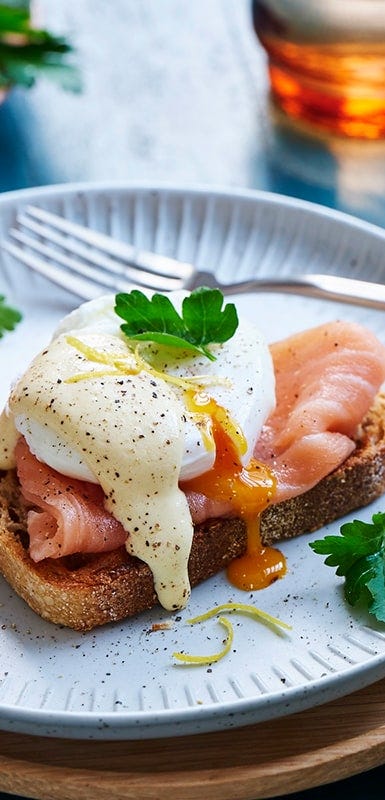Are eggs good for you?
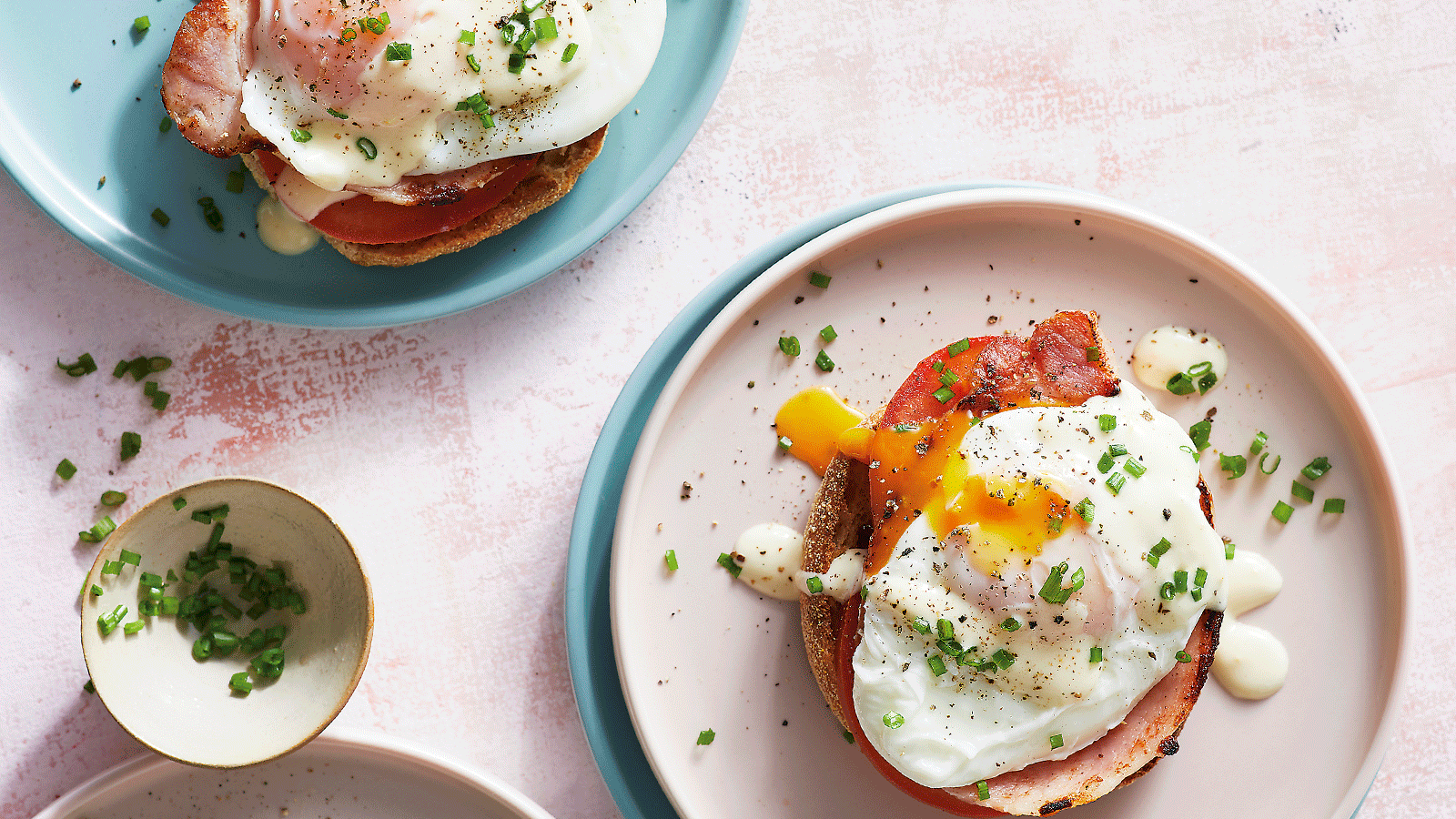

The truth about eggs
Eggs have had a bad rap in decades past, accused of contributing to the risk of heart disease – but now experts say it’s saturated fat that’s a main contributor, not eggs. Accredited practising dietitian Themis Chryssidis, cracks the myths surrounding this super staple.
1. Are eggs healthy?
Short answer: Absolutely!
Long answer: If you want to talk about foods that pack a nutritional punch, eggs would be a top contender. This delicate, versatile whole food contains a unique blend of protein, antioxidants and vitamins, including A, D, and E, as well as iron and folic acid. In the yolk, you also find choline, which is amazing for brain development. “The egg white is high in protein, while the yolk has healthy omega-3 fats and vitamin A,” Chryssidis explains. “Eggs are one of the few foods that contain vitamin D, along with mushrooms.” While egg white omelettes were once a dieting trend, Chryssidis says you’re better off eating whole eggs, because the yolks are where you find important micronutrients including vitamins A, D and E. “We need to focus just as much on our micronutrients as our macronutrients of protein, carbohydrates and fat,” he says.
2. Will eggs increase cholesterol?
Short answer: No
Long answer: You might have heard rumours that eating eggs will spike your blood cholesterol levels and contribute to a build-up of heart-attack-causing plaques, but Chryssidis says that’s been proven to be a complete food myth. “There is a myth that eggs cause bad cholesterol to increase, but research has highlighted that is not the case,” he says. While it’s true that eggs contain cholesterol, scientists now understand that the cholesterol we eat doesn't have much influence over the cholesterol in our blood. “Eggs have cholesterol in them but it’s not increasing our plasma cholesterol,” Chryssidis says. “Saturated fat is more closely related to cholesterol increasing in our bodies and putting our health at risk.” So it’s the fried bacon you serve with your eggs that's more cholesterol-inducing than the eggs themselves. “You are much better off having tomato, mushroom and spinach than bacon, sausages and hash browns,” Chryssidis points out.
3. Can I eat too many eggs?
Short answer: Around six per week is ok
Long answer: Dietitians recommend capping your weekly egg intake at six to seven eggs, however, Chryssidis says that has more to do with aiming for a variety of protein sources than limiting egg consumption. “If you ate more eggs than that you might find you are missing out on red meat or fish, which are other good sources of protein,” he explains. “Eggs are great but you need fish for healthy fats and red meat for easily absorbable iron and B12. Variety is really important.” Two eggs will give you about 13g-14g of protein, which Chryssidis says will really help to keep you full. “A 70kg person needs about 60g of protein a day, so 14g really adds to that,” he says. “Protein is a good thing to have at breakfast because it keeps us full a bit longer – it gives us satiety throughout the day so we eat less, and that aids weight loss.”
4. What’s the healthiest way to eat eggs?
Short answer: Poached or hard-boiled
Long answer: Not all egg cooking methods are equal. “There is quite a difference between a poached egg on rye with avocado and a fried egg with bacon,” Chryssidis says. “If I am boiling or poaching an egg it keeps the egg pretty much in its natural state. But if I’m frying an egg, I’m adding oil and a lot of it gets absorbed and increases the kilojoule consumption from that meal.” There is also a lot of health variation in scrambled eggs. “People often talk about their favourite cafe scrambled eggs and it’s usually got a lot of butter, cream and salt,” Chryssidis says. “But you can make delicious, healthy scrambled eggs at home with a bit of milk. The key is not to cook it too long – take it off the stove just before you think it’s ready so it doesn't dry out.” Hard-boiled eggs are a super handy snack to have in the fridge to grab on the fly for a quick protein hit. “You can boil six eggs at once and have them in the fridge for a few days,” says Chryssidis.
5. Is it safe to have raw eggs in smoothies?
Short answer: How do you feel about salmonella?
Long answer: Bodybuilders in the ’80s might have loved drinking raw egg whites, but you run the risk of food poisoning if you follow suit. Eggs are a fabulous thickener and are used in all manner of desserts and quiches for just that, and while they will thicken up your green smoothie, Chryssidis says they’re not worth the risk. “Eggs can contain salmonella, and you run the risk of getting food poisoning if you eat them uncooked,” he says. “You’d be better off using natural yoghurt, because it will give you protein and thickens the smoothie without the risk of making you sick. You can also put in some oats, which will thicken it up and add some fibre too.”
How to test if eggs are fresh?
Always store your eggs in the fridge to maximise their lifespan, and if you suspect they are less than fresh, pop them in a bowl of cold water. “If the egg floats it’s off, and if it sinks it’s good to go,” Chryssidis says. “An eggshell is porous, so over time air gets into the shell, which is why it floats if it’s gone bad.” Don’t ever eat eggs that are cracked, either.
Why are some yolks more yellow?
What chickens are fed alters their eggs. Chickens fed a diet high in flaxseed have eggs higher in omega-3 fatty acids, while those fed a lot of corn tend to lay eggs with brighter yellow yolks.
Four ways with boiled eggs
1. Add boiled eggs to a Caesar salad. Caesar salad is made with baby cos lettuce leaves, grilled lean bacon, croutons and anchovies with a creamy Caesar dressing. Check our recipe for Chicken Caesar salad>.
2. Boiled eggs are a classic addition to a salad nicoise. It’s made with boiled baby potatoes, blanched green beans, tomato wedges, canned tuna, red onion, black olives, parsley and reduced-fat French dressing.
3. To make an open sandwich, mash 2 hard-boiled eggs, 1 tsp curry powder and 2 tbs 99% fat-free plain yoghurt and season with salt and pepper. Serve on 1 slice of bread with lettuce.
4. Add hard-boiled eggs to a vegetable curry with light coconut milk. To serve 2, cook roughly 8 cups of chopped mixed veggies (carrots, onion, cauliflower, pumpkin, green beans, broccoli) with 2 tsp curry powder, 1 tsp vegetable stock powder, 1 cup boiling water and 80ml light coconut milk. Add 4 halved boiled eggs, sliced red chilli and fresh coriander leaves.

